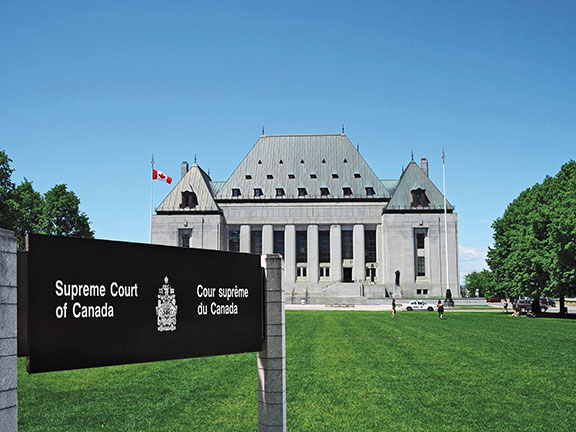By Nicole Storeshaw
Director, Government Relations, CHBA
Acquiring land is a huge investment, and developers shouldn’t need to worry about expropriation by municipalities as a risk. Expropriation does happen, though. And when it does, it should be finalized fairly and swiftly.
But a case in Halifax in which things did not go smoothly recently made it all the way to the Supreme Court of Canada (SCC), and CHBA was an intervenor. The precedent-setting outcome was a major win for CHBA developer members across Canada.
Development refused through intentional municipal inaction
Annapolis Group Inc. (Annapolis) has owned 965 acres of land within the Halifax Regional Municipality (HRM) since 1956. In 2006, the HRM adopted its Regional Municipal Planning Strategy, which zoned the lands for future serviced development.
From that point, the land was used by residents as parkland, complete with HRM trail signage and some financial support provided to private groups that encourage and facilitate hiking and other recreational use on the land.
The 2006 zoning allowed Annapolis to apply for serviced development of its land through a secondary planning process, which it did in 2007. But HRM deferred the application, and Annapolis and HRM entered into facilitation in an attempt to resolve matters, which dragged on for years. Annapolis’s 2007 application was ultimately refused by HRM in 2016.
Had the HRM designated the land as parkland, this would have constituted expropriation and HRM would have been obligated, by statute, to compensate Annapolis within one year. By leaving the land designated for future development, but not allowing development to occur, HRM avoided this cost. It was a case of de facto land expropriation.
Going all the way to the Supreme Court of Canada
In 2017, Annapolis commenced court action. HRM requested dismissal of the case, which was initially rejected by a Nova Scotia Supreme Court Justice, but later was reversed by the Nova Scotia Court of Appeal in 2021, which dismissed the case.
The case then made its way to the SCC, which is when CHBA became involved as an intervenor and provided key testimony in the court’s deliberations. CHBA was represented by Shane Rayman, a leading expropriation lawyer and partner at Rayman Harris LLP.
“Although CHBA does not typically get involved with court cases of individual industry members, the precedent-setting nature of this case at the Supreme Court, and the dramatic benefit a positive outcome could have for all members, made it important to engage,” says CHBA CEO Kevin Lee.
CHBA emphasized that the narrow interpretation of the test for expropriation that has been applied in recent years has weakened protections for landowners, causing uncertainty, and, in turn, increasing the costs of housing. CHBA’s proposed solution was to clarify that the term “beneficial interest” to governments should be interpreted in an expansive manner so that it can include benefits and advantages acquired by the public rather than being restricted to requiring an actual acquisition by the government.
In the end, the SCC ruled in favour of Annapolis in its decision – an excellent outcome for CHBA’s membership.
The SCC clarified that the first part of the de facto expropriation test requires only that the government body acquire an advantage from the property, but not that they actually acquire the property (or some portion of it) – as CHBA had posited.
This precedent-setting judgement has now strengthened that case for all CHBA’s developers in the future. And it clears the way for Annapolis to take its dispute with HRM to court.
Sue Wastell, CHBA first vice-president and president of Wastell Homes in London, Ont., has been following the case and CHBA’s involvement in it as chair of CHBA’s Urban Council, where CHBA discussed the matter. “This ruling by the Supreme Court is very welcome, as it provides more jurisprudence in this area of law for developers, and will help to avoid municipalities using de facto land expropriation without due compensation,” she says.
While there obviously remain many issues with de facto expropriation by governments, this decision is an important step in the right direction for the development community, CHBA members, and Canadians hoping to see more housing supply and housing they can afford in the future.












